Women’s rights in the workplace are a contentious topic. Men have always had the benefit of getting the opportunities, the higher salaries and continue to be the majority of executives running companies and sitting at the helm of industries. How can the state and the private sector be more inclusive of women? Can gender quotas be used in a meaningful way that gives deserving women a chance to thrive? The Interchange is made possible by Absa and Tshimong.
Read moreSouth African youths are faced with a great challenge: unemployment. Young people between the ages of 15–24 years are the most vulnerable in the local labour market as the unemployment rate among this age group was as high as 55,2% in the first quarter of 2019. The unemployment rate for youths with a higher education qualification in this age group is sitting at 31%; an increase of 11,4% quarter-on-quarter. Does this mean that higher education is still the key to success for these young people? The Interchange is made possible by Absa and Tshimong.
Read moreFor years South Africa has been plagued with violence aimed at foreigners. Could xenophobia be a result of a sense of exceptionalism amongst South Africans? How has this 'Afrophobia' contributed to the downfall of Pan-Africanism among Africans? The Interchange is made possible by Absa and Tshimong.
Read moreWhen most of us think of foreign aid, it’s synonymous with receiving help from another country out of goodwill. Foreign aid is meant to benefit the population of the recipient country, but what is the true cost? Can local problems really be solved with international influence, and should African countries be so willing to accept this help? The Interchange is made possible by Absa and Tshimong.
Read moreMillions of people around the world have been forced to flee their homes, but have remained within the borders of their country of origin. These internally displaced people - or IDPs - are often referred to as refugees by virtue of being displaced, yet they are not legally considered to be refugees. Scores of IDPs are stuck in this inhumane predicament with little to no aid. Is their struggle less important than refugees who are in foreign countries? And how do we intervene to curb the growing number of IPDs in South Africa? The Interchange is made possible by Absa and Tshimong.
Read moreIt used to be said that “the future is digital”, but now we live in a digital era. Whether we want to admit it or not, the digital revolution has made our lives easier. Yet, we do not know how the rapid development of technology and artificial intelligence will affect our society in the long-term. Will the advancement of technology only increase the already dangerous divide between the "haves" and the "have-nots"? The Interchange is made possible by Absa and Tshimong.
Read moreThe spotlight is on state-owned enterprises. For decades their value has been questioned and so many of these entities have been in the news for all the wrong reasons. Is the time up for these kinds of enterprises, or is there a way to turn things around? It's the debate of privatisation versus rescue. The Interchange is made possible by Absa and Tshimong.
Read moreIn this era of significant social, environmental, and political challenges, businesses have an opportunity to play a bigger role in shaping society and addressing vital issues such as economic inequality. Yet, while we expect companies to balance their sustainable goals and financial performance objectives, do companies really understand their licence to operate - or is the bottom line simply about making a profit? The Interchange is made possible by Absa and Tshimong.
Read moreIn a country recovering from a decade of corruption, economic stagnation and state capture, what fuelled voter apathy among young South Africans at the May 2019 polls? Was it a protest against lack of change... or is there more behind youth apathy in our country? Motion: This house believes that voter apathy among the youth did more good than harm in the South African general elections. The Interchange is made possible by Absa and Tshimong.
Read more
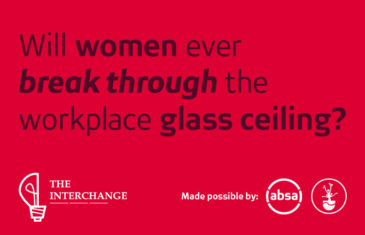
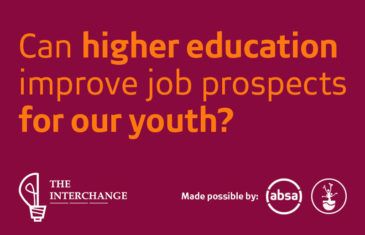
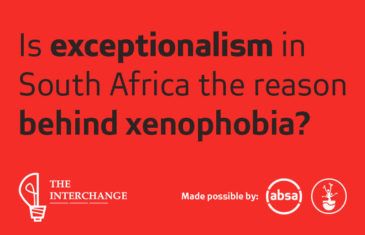
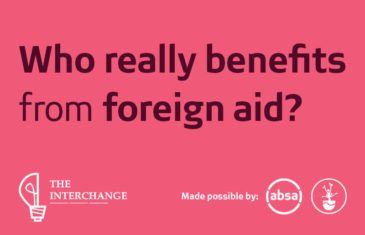
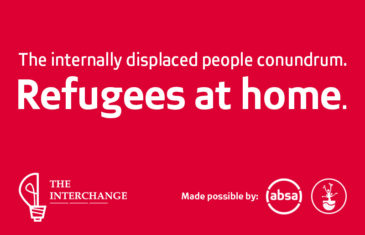

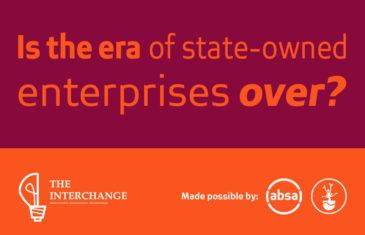
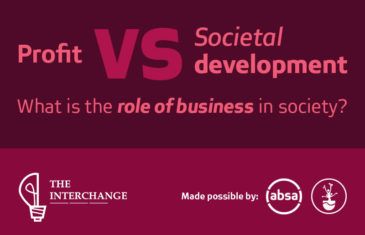
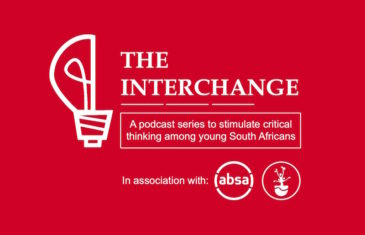
Is there a future for traditional universities?
For many of us, our schooling careers included going to university once completing high school. But, as online learning becomes one of the fastest growing industries, the modern world is quickly moving away from traditional universities. Many of these traditional universities are like Goliaths: not changing enough for the new world of work. Is there a future for traditional universities? Do we still need universities at all? And if so, how do they need to change to remain relevant? The Interchange is made possible by Absa and Tshimong.
Read more